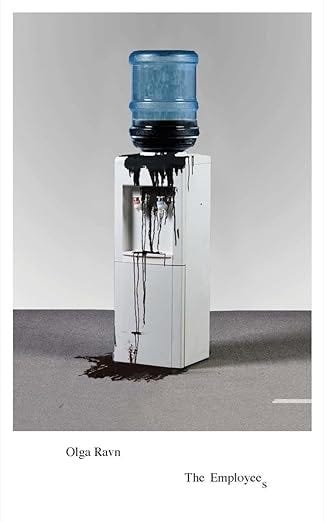On Labor and Longing
Book Review: The Employees by Olga Ravn
“I look like a human, and feel the way humans do. I consist of the same parts. Perhaps all that's needed is for you to change my status in your documents? Is it a question of name? Could I be human if you called me so?”
― Olga Ravn, The Employees
Genre: Science Fiction
My Rating: Five out of five stars
Olga Ravn’s The Employees: A Workplace Novel of the 22nd Century is a haunting meditation on work, identity, and what it means to be human. This slim yet powerful novel takes the form of reports and testimonies from the crew of a spaceship called the Six-Thousand Ship, where human and non-human employees struggle with the existential implications of their work and existence.
Rather than delivering a conventional plot, The Employees unfolds through a series of anonymous statements given to an unknown authority. These statements—some only a few lines long, some deeply philosophical—come from both human and humanoid workers who reflect on their roles, their relationships, and the strange objects they have been tasked with studying. These objects, which they obtained from planet New Discovery, are mysterious and organic in nature, and begin to alter the psychology of the crew, leading to tension, confusion, and a growing sense of rebellion.
Ravn’s fragmented storytelling allows the reader to piece together the novel’s underlying tensions. The humans on board experience nostalgia for Earth, to the point of depression, while the humanoids struggle with their own growing self-awareness. Because none of these reports include names, readers must deduce from context whether they are given by human or humanoid employees.
At its core, The Employees is a dystopian critique of late-stage capitalism. The workers are expected to perform their duties efficiently, regardless of whether they are organic or artificial. Their struggles—whether it’s longing for past lives, questioning their purpose, or resenting their superiors—mirror real-world anxieties about labor and corporate control.
The Employees is an evocative, unsettling novel that lingers long after the last page. I recommend this book to readers who appreciate experimental literature, sci-fi with existential depth, and anyone interested in the intersection of labor and identity.
If you enjoyed this book review, check these out!



